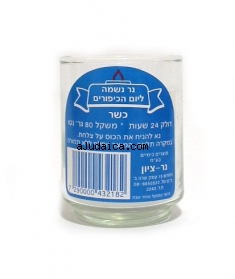From my Dad I inherited:
- his ability to tell a good story, to make a point while making you laugh;
- his commitment to active friendship, the kind of friendship that does what you need even when you don’t know you need it;
- his belief that any day on which you wake up is already a good day, that the gift of life is too precious to waste; and
- his habits of meticulous book-keeping, calendar-keeping, and commitment-keeping.
From my Dad I inherited his love of reading and the sheer joy of opening a new book. Later I discovered that for me, being rich would mean being able to buy any book I wanted to read and never having to browse in second-hand bookshops unless I was looking for treasure. Jewish families like ours, in the early 50’s, bought their children a copy of the World Book Encyclopedia, one volume at a time on a payment plan that they could scarcely afford, so that their children would be better educated than they were. I remember my Dad reading that encyclopedia cover to cover, Aardvark to Zebra, even the boring bits (and there were many such), and perhaps that’s where I also learned that reading some books was about more than having the pleasure of meeting their words.
My Dad taught me to swim almost before I could walk by carrying me on his back as he swam from the gentle shores of White Sands Beach, CT to the floating dock in the waters of Long Island Sound. I’ve loved swiming and being in/around the water ever since. I have no fear of the ocean’s waves and can still feel his support whenever I’m over my head.
We buried my Dad on my 50th birthday. He spent just a few days in hospital, having not been ill before his unexpected collapse just as I was about to deliver a presentation at that year’s SAPPHIRE conference in Phoenix. My Dad was a perfectly ordinary man to whose funeral came hundreds of people we didn’t know who had been helped by him, quietly, without ever asking. In his retirement, it appeared that he had “adopted” older members of our schul who needed rides to doctors’ appointments, help paying their bills, or just an hour’s companionship. Without the means of major philanthopy, he found the means for active philanthropy.
By the time I launched my own business in 1987, the cost of long distance calls, so daunting when I first left home, were much more affordable, and I called him most days in the late afternoon. Those calls always started with:
- Dad: How’s business?
- Naomi: Business is great.
- Dad: Are your clients paying their bills on time?
- Naomi: Yes, they sure are.
- Dad: Are their checks clearing the bank?
- Naomi: Absolutely.
When you know that those early clients were firms like Bank of America, Hewlett Packard and International Paper, something my Dad certainly knew, this ritual opening to our calls goes from being merely odd to very odd, unless you also know that being a small retailer all his life shaped forever my Dad’s view of Accounts Receivable. From there we’d go on to the events of his and my day, and to what was happening across the Bloom family and the larger Jewish community in which I grew up. I don’t remember my Dad ever calling me — long distance calls were for emergencies only — but I know he loved my calls because he reported on them to the group of men with whom he ate breakfast every day at a local deli.
I’ve always said yahrzeit for my Dad at the appropriate times in our Jewish calendar, but I’m missing him very much on this Father’s Day. If you’re lucky enough to still have your Dad, don’t wait for Father’s Day to call him.
